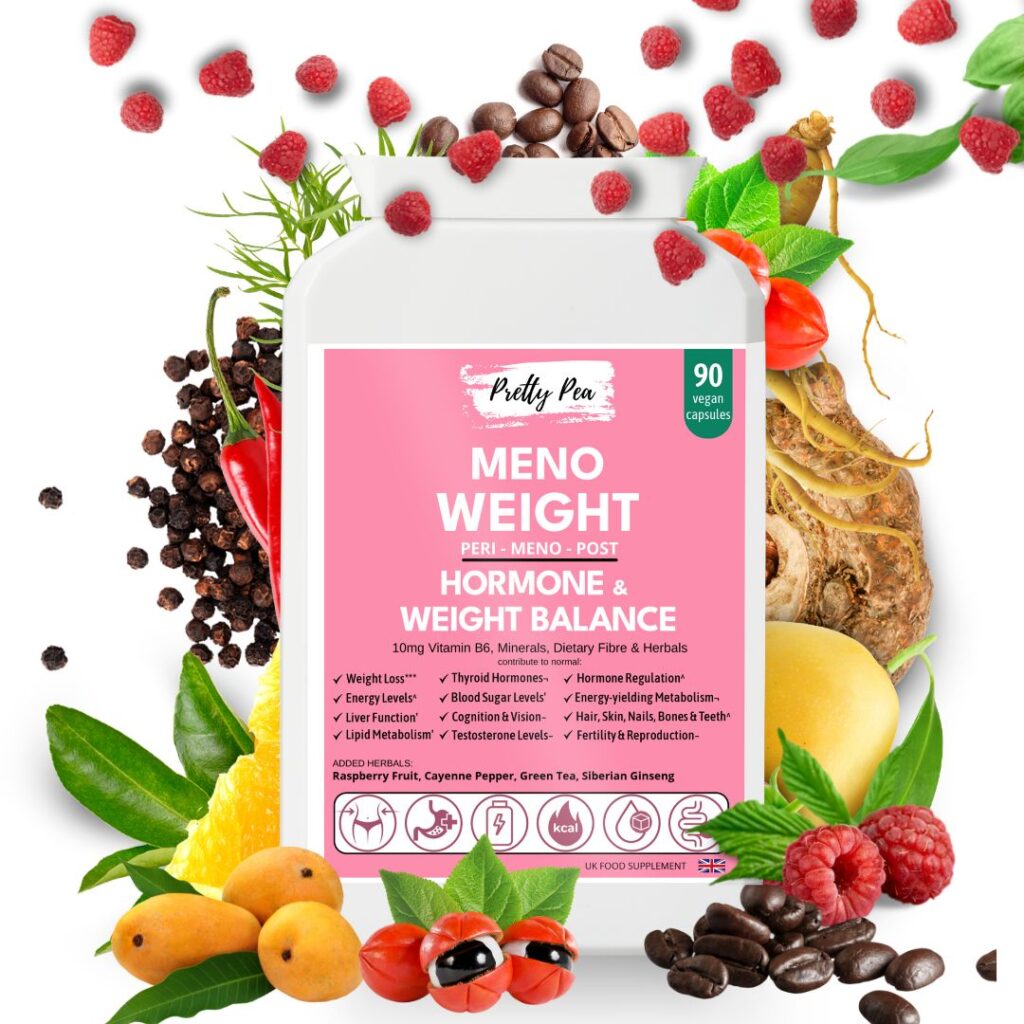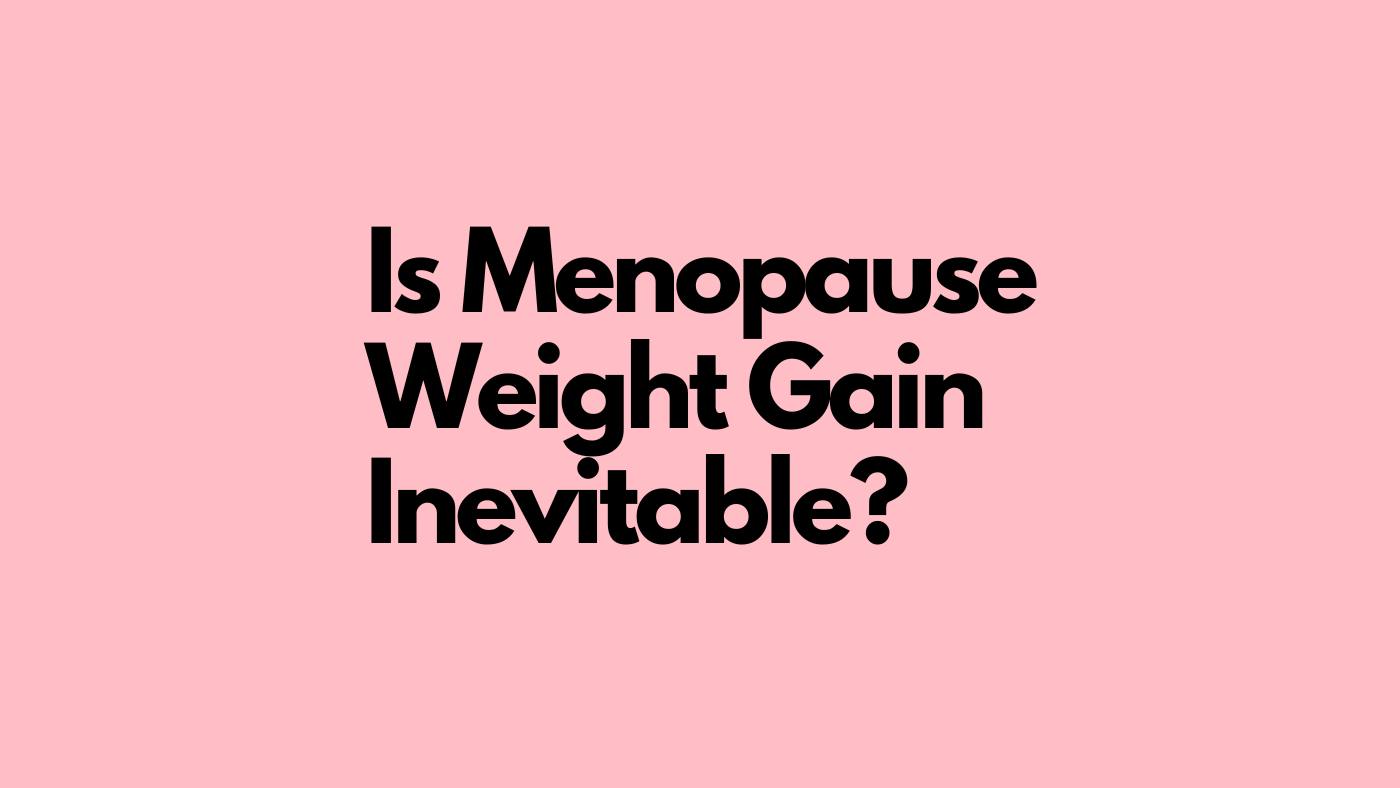What Causes Menopause Weight Gain, and Is It Inevitable? 5 Solutions to Manage Weight
For many women, menopause signals a significant change, not just in reproductive health but also in physical appearance and body weight. One of the most common concerns during this transition is menopause weight gain.
If you’re in your 40s or 50s, you may have noticed that the pounds seem to creep up, particularly around the abdomen. While this is a natural part of aging, it doesn’t make it any less frustrating.
But why does this happen? Is it inevitable? And, most importantly, what can you do about it? Let’s explore the causes of menopause weight gain, debunk myths and find out the 5 best solutions.
What Causes Menopause Weight Gain, and Is It Inevitable?
For many women, menopause brings more than just hot flashes and mood swings—it also tends to come with unwelcome weight gain. If you’re approaching or currently experiencing menopause, you might have noticed the numbers on the scale creeping upward, especially around your abdomen.
So, what’s causing this menopause weight gain, and is there anything you can do about it?
The short answer: It’s complicated but not entirely inevitable. In this blog post, we’ll explore the reasons behind menopause weight gain and provide you with five actionable solutions to help you manage it. Plus, we’ll introduce you to Pretty Pea’s menopause weight loss supplement, a formula specifically designed to support women through this transitional phase.

Why Does Menopause Cause Weight Gain?
Menopause is a natural biological process that marks the end of a woman’s reproductive years, typically occurring between the ages of 45 and 55. During this time, your body undergoes several hormonal changes that can significantly impact your metabolism and fat distribution. Let’s dive deeper into the reasons behind this weight gain:
1. Hormonal Changes: The Drop in Estrogen Levels
One of the primary culprits behind menopause weight gain is a drop in estrogen levels. Estrogen is a hormone that plays a key role in regulating metabolism and fat distribution in the body. As your estrogen levels decline during menopause, your body may begin to store more fat, particularly around the abdomen.
Lower estrogen also affects your body’s ability to use starches and blood sugar effectively, leading to increased fat storage. Moreover, estrogen loss can influence how your body produces and uses insulin, potentially contributing to insulin resistance—a condition that makes it easier to gain weight.
2. Slower Metabolism
As you age, your metabolism naturally slows down. This is partly due to the loss of muscle mass, which is accelerated during menopause. Muscle is more metabolically active than fat, so the less muscle you have, the fewer calories you burn, even when at rest. A slower metabolism means you’ll need fewer calories to maintain your weight, and any excess calories are more likely to be stored as fat.
3. Changes in Fat Distribution
Before menopause, women tend to store fat around their hips and thighs (often called “pear-shaped” fat distribution). However, during and after menopause, fat is more likely to accumulate around the abdomen (leading to an “apple-shaped” fat distribution). This shift is not just a cosmetic issue; this abdominal fat is linked to a higher risk of developing chronic diseases like heart disease, type 2 diabetes, and certain cancers .
4. Decreased Physical Activity
Many women find that their energy levels drop during menopause, and as a result, they become less physically active. The combination of a slower metabolism and reduced physical activity can make it easier to gain weight. Additionally, lifestyle changes that often occur around the time of menopause—such as children leaving home, changes in work routines, or increased caregiving responsibilities—can also contribute to less time for exercise.
5. Sleep Disturbances
Menopause is notorious for causing sleep disturbances due to night sweats, hot flashes, and anxiety. Poor sleep can disrupt your body’s hunger and satiety hormones, like ghrelin and leptin, making you more likely to overeat and crave high-calorie foods. Lack of sleep also reduces your energy levels, making it harder to stay active during the day.

Is Menopause Weight Gain Inevitable?
While the hormonal and metabolic changes during menopause can certainly make it easier to gain weight, it doesn’t mean that menopause weight gain is inevitable. By understanding these changes and adopting the right strategies, you can take control of your weight and overall health.
Now, let’s explore five actionable solutions to manage menopause weight gain.
5 Solutions to Combat Menopause Weight Gain
1. Prioritize Strength Training
One of the most effective ways to combat the loss of muscle mass during menopause is through strength training. Lifting weights or doing bodyweight exercises, such as squats, lunges, and push-ups, helps to preserve and build muscle mass. More muscle mass means a higher metabolic rate, which can help you burn more calories throughout the day—even at rest.
Incorporating strength training into your weekly routine, even just two or three times per week, can make a significant difference in maintaining a healthy weight and preventing fat accumulation around the abdomen .
2. Focus on a Balanced Diet
While it may be tempting to try restrictive diets, the best approach for managing menopause weight gain is a balanced, nutrient-dense diet. Here are some key dietary principles to follow:
- Protein: Prioritize lean protein at every meal. Sources such as chicken, fish, legumes, and tofu support muscle preservation and promote satiety.
- Healthy Fats: Include healthy fats from sources like avocados, nuts, seeds, and olive oil to help balance your hormones and support overall health.
- Fibre: Increase your intake of fibre-rich foods like vegetables, berries, whole grains, and legumes to improve digestion and keep you feeling fuller longer.
- Limit Processed Foods: Reduce your intake of processed, high-sugar, and high-fat foods that contribute to weight gain.
3. Manage Stress Levels
The hormonal changes during menopause can increase your body’s production of cortisol, the stress hormone. Elevated cortisol levels are associated with weight gain, particularly around the abdomen where there are more stress receptors. Incorporating stress management techniques such as meditation, yoga, or deep breathing exercises can help lower cortisol levels and reduce the likelihood of stress-induced weight gain.
4. Stay Hydrated
As simple as it sounds, drinking enough water is essential for managing your weight. Staying hydrated can help control hunger, improve digestion, and boost your metabolism. It’s easy to mistake thirst for hunger, which can lead to overeating, so make sure you’re drinking enough water throughout the day.
Additionally, consuming water-rich foods like cucumbers, watermelon, and leafy greens can help keep you hydrated while also providing essential nutrients.
5. Consider a Menopause-Specific Supplement
While diet and exercise are crucial, sometimes you need a little extra support to manage menopause weight gain. This is where menopause-specific supplements come into play. Pretty Pea’s menopause weight loss supplement is designed to address the unique challenges women face during menopause. It contains natural ingredients that support hormonal balance, boost metabolism, and support the body’s fat burning processes.
With its blend of vitamins, minerals, and herbal extracts, Pretty Pea’s supplement helps to ease the transition through menopause while supporting your weight management goals.

Why Choose Pretty Pea’s Menopause Weight Loss Supplement?
Pretty Pea’s Meno Weight is formulated with ingredients that have been proven to help women manage menopause symptoms and control menopause weight gain. With 16 key ingredients and over 16+ science backed benefits these clever capsules also support energy levels, mood & cognitive function, liver function, metabolism and much more.
Some of the key ingredients include:
- Green Tea Extract: Known for its metabolism-boosting and fat-burning properties, green tea extract can help you burn more calories and reduce belly fat .
- Glucomannan: This unique fibre is an exceptionally viscous fibre. Alongside the usual digestive support fibre brings, this fibre naturally expands in the stomach promoting a feeling of fullness helping to regulate appetite and prevent over-eating.
- Vitamin B6: This vitamin is vital for the regulation of hormone activity in the body whilst also reducing tiredness and fatigue.
- Chromium contributes to normal blood glucose levels, (affecting fat storage hormone insulin).
- Raspberry (raspberry ketones), contains a natural phenolic compound that may help support lipolysis & increase the rate at which calories are burned.

By incorporating Pretty Pea’s menopause weight loss supplement into your daily routine, you can help restore balance to your body, manage weight gain, and feel more like yourself again.
Conclusion: Take Control of Menopause Weight Gain
Menopause weight gain is a common challenge, but it’s not an inevitable one. By understanding the hormonal and metabolic changes that occur during this phase and adopting healthy lifestyle habits, you can take control of your weight and your health. Incorporating strength training, following a balanced diet, managing stress, and staying hydrated are essential strategies.
And for that extra boost, consider adding Pretty Pea’s menopause weight loss supplement to your regimen. With the right approach, you can navigate menopause with confidence and maintain a healthy weight.
References:

